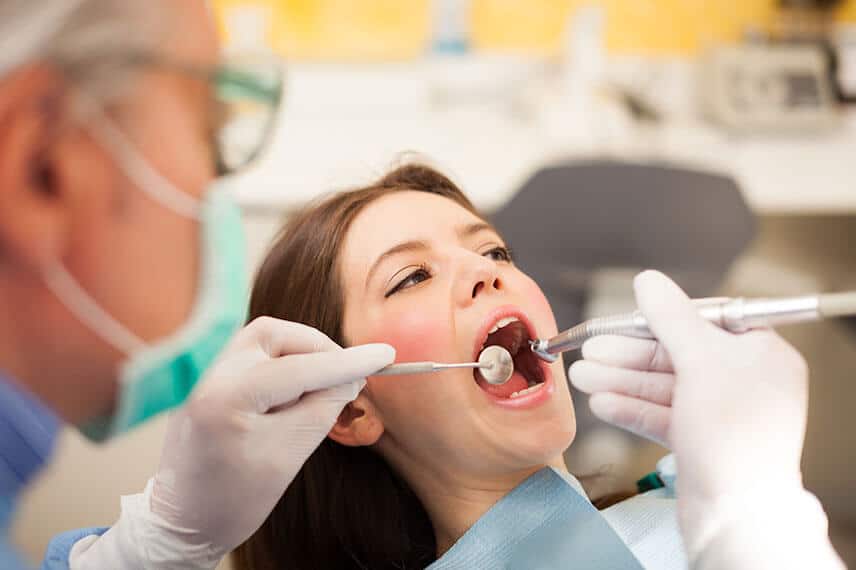
1. What is Oral Cancer
Oral cancer is a type of cancer that affects the tissues of the mouth and throat. It is a relatively rare form of cancer, accounting for only about 3% of all cancers diagnosed in the United States each year. However, oral cancer is still a serious disease that can be deadly if not caught early and treated properly.
The good news is that oral cancer is one of the most preventable types of cancer. And, with early detection, the survival rate for oral cancer patients is quite high.
In recent years, there has been a rising awareness of oral cancer and its risk factors. This is due in part to the fact that more and more people are surviving oral cancer thanks to early detection and treatment.
This blog will provide you with everything you need to know about oral cancer – from its symptoms and risk factors to its prevention and treatment.
2. Who is most at risk for developing oral cancer?
Anyone can develop oral cancer, but there are certain factors that can increase your risk. Those factors include:
– Tobacco use in any form (cigarettes, cigars, hookah, snuff, smokeless tobacco, etc.).
– Excessive alcohol consumption (consuming more than 21 alcoholic beverages per week).
– Age (most cases of oral cancer occur in people over 55).
– Poor oral hygiene (lack of brushing, flossing, and regular dental check-ups).
– Chronic sun exposure (especially the lower lip).
– Human papillomavirus (HPV) infection.
– Exposure to certain chemicals, such as formaldehyde and pesticides.
– Previous oral cancer history.
If you are at an increased risk for developing oral cancer, it is important to visit your dentist regularly for regular screenings. Early detection and treatment can save your life.
3. What are the symptoms of oral cancer?
Oral cancer can often develop without symptoms. That is why it is so important to get regular screenings from your dentist. It is possible for oral cancer to manifest in symptoms such as:
– Sores that do not heal
– White or red patches on your gums, tongue, or inside of your cheek
– A lump or thickened area of tissue on the oral cavity
– Difficulty or pain when chewing or swallowing
– Loose teeth
– Swelling in the jaw
– Unexplained bleeds
– Loss of feeling in any part of the mouth
– Unexplained voice change
If you experience any of these symptoms, it is important to get checked by your dentist.
4. How can you prevent oral cancer?
Preventing oral cancer requires the same type of habits that are often recommended for preventing other kinds of cancer. Here are some tips for preventing oral cancer:
– Stop smoking
– Limit alcohol consumption
– Eat a healthy and balanced diet
– Brush and floss your teeth regularly
– Protect against harmful UV rays by wearing sunglasses and sunscreen when outdoors
– Get regular oral cancer screenings at your dentist
– See your doctor for regular physical exams, particularly if you have any of the risk factors
Additionally, there are certain vaccines that can help you protect against certain types of oral cancer. The HPV vaccination, for instance, can reduce the risk of oral cancer associated with the HPV virus.
5. What is the treatment for oral cancer?
The type of treatment for oral cancer depends on the individual, the severity of the cancer, and their personal preferences. Treatment typically involves a combination of approaches, including surgery, chemotherapy, and radiation therapy. In some cases, tumor-shrinking drugs and targeted therapies may also be used.
Surgery is one of the main treatments for oral cancer, used for removing tumors or cancerous cells. For example, a procedure called a glossectomy removes part or all of the tongue to remove cancerous tissue. Other surgeries may involve the removal of lymph nodes.
Chemotherapy and radiation may be used either before or after surgery in order to shrink tumors. Radiation therapy is used to shrink tumors and kill cancer cells, while chemotherapy is used to stop the growth of cancer cells by attacking their DNA.
In some cases, targeted therapy may also be used. This type of therapy targets specific genes or proteins in cancer cells, which can cause the cancer to shrink or stop growing. Immunotherapy is also sometimes used to help the body’s own immune system fight cancer.
Many oral cancer patients receive a combination of treatments to combat the cancer and minimize side effects. Your doctor can advise you on which treatment option is best for you.
6. Visit The Good Dentist
Oral cancer is a serious health condition, but one that is increasingly curable if caught early. Being aware of the signs and symptoms can ensure early detection, and taking action to protect yourself from the risk factors can help prevent it from developing in the first place.
If you or someone you know is showing signs of oral cancer, make sure to seek medical advice. Early diagnosis and treatment can make a big difference to successful outcomes. With good advice, moderation and preventive habits, you can make sure you stay healthy and keep your mouth in the best shape possible.

